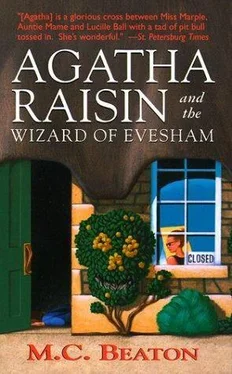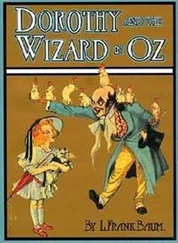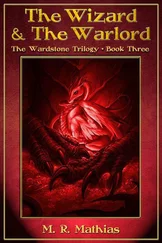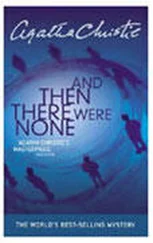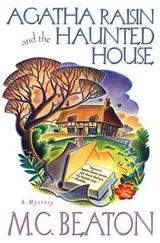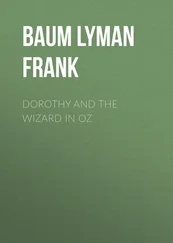“The pathologist, by coincidence, had been fascinated with the Markov case and had read all the medical notes on it. The tiny platinum sphere, just 1.77 millimetres in diameter and drilled through with two tiny 0.35 millimetre holes to carry the ricin, is now in the Black Museum at Scotland Yard.”
“Was the same thing done to this hairdresser?”
“No, he appears to have swallowed the ricin. There were traces of gelatin. We believe it might have been put into pills of some sort.”
“Lifex,” said Agatha suddenly.
“What’s that?” demanded Bill.
“Vitamin pills. He showed me a bottle of them. Said they were multi-vitamins and that he kept a bottle in the salon as well. They were large and gelatin-covered.”
“Now we’re getting somewhere,” said Bill eagerly. “I’ll just phone that through.”
He went into the hall with his mobile phone. Agatha longed to warn Charles not to say too much, but the policewoman, a large and stolid female, sat studying them closely as if they were both some rare species of animal.
Bill came back and sat down.
“In view of your knowledge, Detective Inspector John Brudge of Worcester CID will be over to see you as well.”
Agatha groaned. “I’ve told you everything I know.”
Bill ignored her and turned his attention to Charles.
“Now, Sir Charles, where do you come into this? Were you under the impression that John Shawpart was a blackmailer?”
“I got that idea first from Aggie here. I decided it would be fun to find out and egged her on. I persuaded her to go out with him for dinner and tell him that James Lacey was coming back and she was terrified he would find out about us and so she was to tape the whole thing and see if he demanded money for her silence, but it all went wrong.”
“What happened?”
“To reinforce Aggie’s fiction, I turned up here to wait until they arrived back from the restaurant to play the part of the jealous lover. Unfortunately I did it a bit too well. I grabbed Aggie’s arm and her handbag went spinning and the tape recorder fell out and he saw it.”
“Did he say anything?”
“Let me see, he said something like, ‘Yours, I think.’ He looked amused in a nasty way, but as I explained to Aggie afterwards, lots of people carry these little machines around with them.”
“But he asked Mrs. Raisin to go into business with him, so he cannot think you suspected him of anything.”
“Well,” said Agatha reluctantly, “that was because I managed to make him think I had fallen for him.”
Bill leaned back in his chair. “I must ask you again: What made both of you persist in thinking he was a blackmailer?”
“I told Bill we saw that ferrety-looking woman, I mean John and me, when we left a restaurant, and she looked so white and frightened,” said Agatha, trying to signal with her eyes to Charles not to betray Mrs. Friendly.
“Oh, I can tell you all about that,” said Charles breezily. Agatha groaned inwardly.
“We were bored,” said Charles.
“I beg your pardon,” exclaimed Bill.
“Bored. Ennui. Fed up. No interest. So when Aggie said teasingly, she was sure he was a blackmailer, I went along with it, worked her up, you know. All a bit of fun.”
“And now he’s dead, murdered,” said Bill evenly.
“And so he is, which shows he must have been up to some malarkey after all and it’s up to you to find out what it was. But we had nothing to do with it.”
“You went to the hospital, Sir Charles, with Mrs. Raisin here. She said she was the deceased’s sister. Then, despite the fact that Mrs. Raisin told us before you arrived that someone had told her that Shawpart’s house had been burnt, your car was spotted driving slowly past on the night of the murder.”
“I was curious to see where he lived,” said Charles blandly.
“All right, let’s go back over some points. Which restaurant were you in, Mrs. Raisin, when you saw this frightened woman?”
“The bistro that’s attached to the Crown Inn in Blockley.”
“You said that the night before he died you shared a Chinese meal with him. Which restaurant?”
“He sent out for it. I can’t remember which one.”
“This business he meant to start in London. According to that assistant Garry, John Shawpart seemed under the impression that you were so besotted with him that you were prepared to pay for the whole thing.”
Agatha turned dark red with mortification.
“Good act you put on, Aggie,” said Charles. “He must have believed you were really smitten.”
“Ah, yes, you said it was an act,” said Bill. “That will be all for the moment. You will both be expected to make statements.”
“When will Worcester CID be calling?” asked Agatha.
“Quite soon.”
“Then I’d better stay,” said Charles cheerfully, “and let them deal with both of us at once.”
Agatha stood up to show Bill and the policewoman out, her legs stiff with tension.
“We’ll be in touch, Mrs. Raisin,” said Bill, avoiding the hurt and rejected look in Agatha’s eyes.
She nodded to him, shut the door on them both, joined Charles in the living-room and burst into tears.
Bill got into the police car and took the wheel. The policewoman got in on the passenger side. The reason that Bill had been so cold and formal with Agatha was that he was accompanied by Snoopy Christine, the bane of Mircester police headquarters. She delighted in finding out weaknesses in her fellow officers and gossiping about them to anyone who would listen.
Her first words when they had set out from Mircester earlier had been, “Rumour has it that you’re a friend of this Agatha Raisin’s.”
And Bill, who knew Agatha was in trouble over pretending to be dead man’s sister and was well aware that any sign of warmth towards Agatha on his part would be reported by the beady-eyed Christine, had said casually, “Just some woman I met on some cases.”
“Her husband was murdered, wasn’t he?”
“Yes, I was on that case.”
On the road back after interviewing Agatha and Charles, Christine said nastily, “They’re nothing more than a couple of rich layabouts, amusing themselves by playing at detectives.”
“Exactly,” said Bill casually. With any luck, all Agatha would get would be a rap over the knuckles for having pretended to be Shawpart’s sister. Any sign of favouritism on his part, and Christine would put it about and it might get to Worcester and they might feel compelled to punish Agatha to show the police did not have favourites.
“Come on now, Aggie,” Charles was saying in a soothing voice, “it looks as if you’re off the hook. No one saw you going to his house after he was murdered.”
Agatha dried her eyes and blew her nose. “It’s Bill,” she said. “He was my very first friend and now he’s gone off me.”
She cleaned the burnt mess out of the fireplace, put it in a garbage bag, ran out and slung the bag into James’s garden. She returned to Charles.
“Probably had to be formal in front of that cow of a policewoman. Brace yourself. I think the heavy mob’s arrived.”
Detective Inspector John Brudge was an intelligent-looking man with dark hair and a thin, clever face. He not only brought a detective sergeant and a detective constable with him, but two policemen and a search warrant.
While he took Agatha and Charles carefully through their stories again, Agatha could hear the forces of law and order moving through the cottage, searching every drawer, cupboard and nook and cranny.
It was annoying rather than worrying, for she had nothing to hide. She had even wiped her conversation with the hairdresser from her tape recorder.
The one main thing that was making her begin to relax was that no one had seen her at the villa on the Cheltenham Road on the day it was burnt down.
Читать дальше
